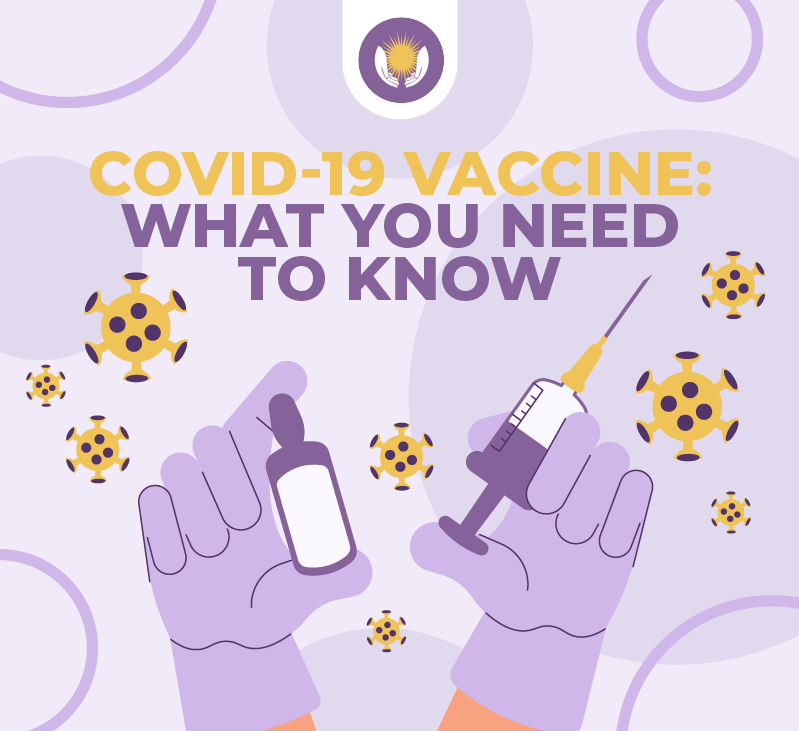Why should older adults get vaccinated? [Infographic]

According to the CDC, older adults are more likely than the general population to require care when they contract COVID-19.
Compared to adults ages 18 to 29, adults who are between 65 to 74 years old are five times more likely to require hospitalization and 90 times more likely to die from COVID-19. Outcomes get worse for every subsequent age bracket.
Long-term care facilities residents are among the first recommended group to take the Vaccine in the U.S. Although their residents represent fewer than 1% of the U.S. population, they account for 40% of COVID deaths.
Professor and chief of the Division of Geriatrics at Health University of Utah Doctor Mark Supiano says that, It’s extremely important for older adults to get the vaccine as soon as possible. People who are in this age group—who have multiple chronic conditions, who may be frail, or living in a nursing home—all the more need the vaccine. The data we have at this point suggests the two vaccines that are available are extremely safe and well-tolerated in this age group.

Phases and Eligibility
As President Joe Biden announced plans to increase eligibility, including to those 65 and older, the Department of Health and Human Services announced at a press briefing that vaccination should begin for people 65 and older and those with underlying medical conditions that are considered high risk for COVID-19.
As of January 19, at least 28 states included adults 65 and older in their Phase 1a or Phase 1b priority groups. Among these states, 15 had started vaccination and registration for this age group.
Is The Vaccine Safe?
To help make important unapproved medical products, including vaccines, available quickly during the COVID-19 pandemic, the US Food and Drug Administration (FDA) can use what is known as an Emergency Use Authorization (EUA)external icon. Before any vaccine can be authorized for use under an EUA, FDA must determine that the vaccine’s benefits outweigh possible risks.
CDC and FDA are monitoring vaccine safety closely. The United States is using existing robust systems and data sources to conduct ongoing safety monitoring. An additional layer of safety monitoring has also been added that allows CDC and FDA to evaluate COVID-19 vaccine safety almost immediately.
- Pfizer reported that its vaccine is 94% effective in people 65 and older.
- Moderna has reported that its vaccine is more than 95% effective.
- A separate FDA analysis showed 86% efficacy in preventing moderate disease in adults 65 and older.
What To Expect From The Covid-19 Vaccine?
Pfizer-BioNTech COVID-19 vaccine
o Number of shots: 2 shots, 21 days apart
o How given: Shot in the muscle of the upper arm
Moderna’s COVID-19 vaccine
o Number of shots: 2 shots, one month (28 days) apart
o How given: Shot in the muscle of the upper arm
You may have symptoms like a fever after you get a vaccine. This is normal and a sign that your immune system is learning how to recognize and fight the virus that causes COVID-19.
On the arm where you got the shot:
- Pain
- Swelling
Throughout the rest of your body:
- Fever
- Tiredness
- Chills
- Headache
If you have pain or discomfort, talk to your doctor about taking over-the-counter medications, such as ibuprofen or acetaminophen. To reduce pain and discomfort where you got the shot.
Most Common Questions
Can I get COVID-19 from the vaccine?
No. You cannot get COVID-19 from the vaccine. Neither of the currently available vaccines contains the live or dead virus. In fact, these vaccines contain the genetic information on COVID-19 to help your body produce an immune response to the virus.
An mRNA vaccine (such as COVID-19) can change your DNA.
Not true. mRNA or “messenger” RNA contains instructions for your cells to build a specific protein and do not contain or impact your DNA. With the COVID-19 vaccine, the mRNA tells your body’s cells how to make proteins that protect against the virus.
If I have had COVID-19, I don’t need the vaccine.
Not true. COVID-19 poses a severe health risk, and it is possible to be infected repeatedly with the virus. Therefore, most people who have had COVID-19 are advised to still receive the vaccine.
Will a COVID-19 vaccination protect me from getting sick with COVID-19?
Yes. COVID-19 vaccination works by teaching your immune system how to recognize and fight the virus that causes COVID-19, and this protects you from getting sick with COVID-19.
For more information go to Cdc.gov/Coronavirus and your local government website.

Comments